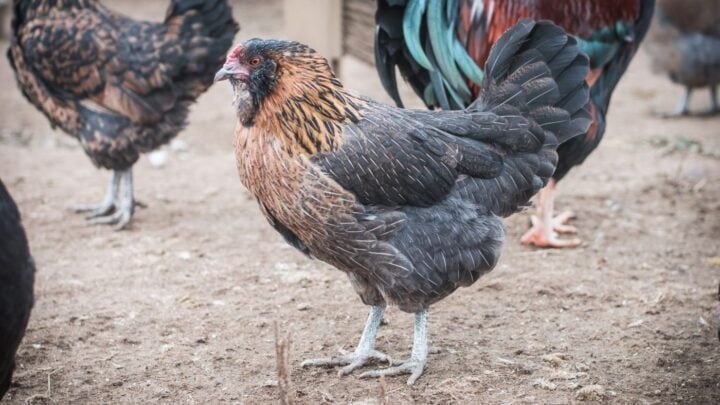For those who raise chickens, ensuring the health and happiness of your flock is paramount. Understanding what wild plants chickens can eat safely is crucial in providing a natural and nutritious diet for your feathered friends. In this detailed guide, we’ll explore various wild plants that are safe for chickens to consume, offering insights into their nutritional benefits and how they can complement a chicken’s diet.

The Importance of Natural Foraging
Chickens are natural foragers, and allowing them access to a variety of wild plants not only promotes healthy behavior but also supplements their diet with essential nutrients. It’s important to know which plants are safe to ensure the wellbeing of your flock. Let’s dive into some plants that are not only safe but beneficial for chickens.
Common Safe Wild Plants
Dandelions
Dandelions are more than just a common weed. They are packed with vitamins A, C, K, and minerals like calcium, iron, and potassium. Chickens can eat every part of the dandelion, making it an excellent addition to their diet.
Clover
Clover is another safe and nutritious plant for chickens. It’s rich in protein and can be a great source of nutrition. Chickens enjoy pecking at clover, and it can help in enhancing their overall health.
Nettles
Though they might seem intimidating, nettles lose their sting when wilted or dried. They are high in protein, vitamins, and minerals, making them a great choice for a nutritional boost.
Plantain
Not to be confused with the banana-like fruit, plantain leaves are safe for chickens. Rich in vitamins and minerals, they are known for their anti-inflammatory properties and can be a great addition to your chicken’s diet.
Understanding Toxic Plants
While there are many wild plants that are safe for chickens, it’s equally important to be aware of those that are toxic. Plants like nightshade, foxglove, and rhubarb leaves should be avoided as they can harm your flock. Always supervise your chickens when they are foraging in the wild.
Benefits of Safe Wild Plants
Incorporating safe wild plants into your chickens’ diet has numerous benefits. These plants can provide essential nutrients, reduce feed costs, and promote natural foraging behavior. Moreover, they can enhance the flavor of eggs and meat, making them a valuable addition to any poultry diet.
Natural Remedies and Enhancements
For those interested in natural poultry care, our article on natural remedies offers insights into how wild plants can help in soothing and preventing common poultry ailments.
How to Introduce Wild Plants
When introducing wild plants to your chickens’ diet, start slowly. Monitor their reaction and ensure there are no adverse effects. Gradually increase the variety and quantity to allow them to adapt to the new additions.
Ensuring a Balanced Diet
While wild plants are beneficial, it’s important to maintain a balanced diet. Ensure that your chickens have access to quality feed, clean water, and a variety of greens. For more information on enhancing their diet, check out our guide on fermenting chicken feed.
Conclusion
Understanding what wild plants chickens can eat safely can significantly enhance the quality of life for your chickens. By providing them with a rich and varied diet, you ensure their health and happiness. Whether you’re an experienced poultry keeper or a beginner, incorporating these plants can be a rewarding endeavor.

FAQ
Can chickens eat all types of wild plants?
No, not all wild plants are safe for chickens. It’s important to know which plants are safe and which are toxic.
How often should I feed wild plants to my chickens?
Wild plants should be a supplement to their regular diet. Introduce them gradually and ensure a balanced diet.
Are there any specific plants to avoid?
Yes, avoid plants like nightshade, foxglove, and rhubarb leaves as they can be toxic to chickens.
For more information on keeping your chickens healthy with natural solutions, visit Access Agriculture.
This article contains affiliate links. We may earn a commission at no extra cost to you.











